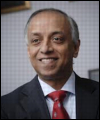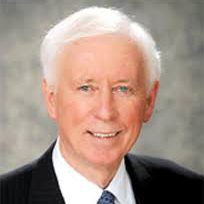BMA President Professor Sir Sabaratnam Arulkumaran
“We should be proud of the British Medical Association (BMA). It is held in high esteem by the public.” With those words Professor Sir Sabarathnam Arulkumaran began his address to leaders of the BMA on his installation as President this week in Edinburgh, Scotland. Prof. Sabarathnam went on to highlight a responsibility for physicians to “…rectify shortcomings and stand up to challenges”. He called on fellow physicians to fight for what is needed for patient care and for optimal working conditions for physicians who provide that care.

Professor Sabarathnam said that the BMA in its mission to promote high quality health care should interact with four constituencies: its physician members, the public, politicians and sister organizations. He laid out a four-point agenda he will promote during his year as president of the BMA.
- Survey BMA members to measure the amount of volunteer care they provide and inform the public and politicians of that service.
- Advocate nationally and internationally about the reality of climate change and the effects it has on health. This advocacy includes helping patients adapt to the effects of climate change, and working with society to mitigate climate change.
- Advocate nationally and internationally to address the challenge of noncommunicable disease (NCD) and the social determinants of health. This includes advocacy for change in health behaviors that are risk factors for NCDs as well as the social determinants that affect those behaviors.
- Take a rights-based approach to healthcare recognizing a responsibility of society to help those in need.
Professor Sabarathnam is Head of Obstetrics and Gynecology at St. George’s University of London. He has been in clinical practice for 37 years, and in research and teaching for 25 years. His research and clinical interests are in understanding and improving the quality of life for women and newborn babies. He has a distinguished history of participation in professional associations and is author of 24 books and 245 indexed articles. He is currently President-elect of the International Federation of Obstetrics and Gynecology.
Following Professor Sabarathnam’s speech Dr. Steve Hajioff, Chairman of the BMA Representative body, speaking in response, described him as a physician of great gentility, wisdom and compassion. For those of us who had not previously known Professor Sabarathnam, the vision laid out in his speech also gave evidence of an active leader with a vision for the future and the leadership role physicians must play.
My mantra for this year representing the World Medical Association – a message I repeat at every opportunity – has been three-fold:
- The moral imperative of ethics in medicine
- The challenge of noncommunicable disease (NCD) and the social determinants of health
- The threat of climate change
My experience in carrying this message has been positive. When I talk about ethics in medicine I find that physicians’ eyes light up and they respond positively to the responsibility physicians have to act from a platform based on ethics and principle. When I talk about NCDs and social determinants I see a nodding of heads that tells me there is an understanding that this is the major cause of death and health related disability around the world, in developed and developing countries. When I raise the issue of climate change there is the same understanding.
Hearing the new President of the BMA, Professor Sabarathnam lay out his goals for this year, that include dealing with climate change, NCDs/social determinants and the ethics of caring for everyone, was reassuring. I wish him and the BMA all the best in that effort.

